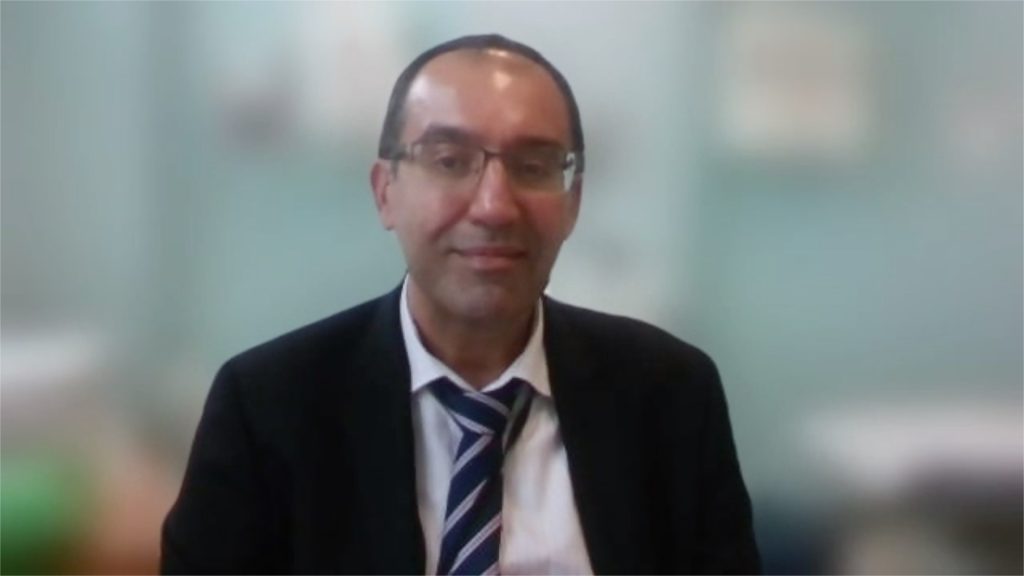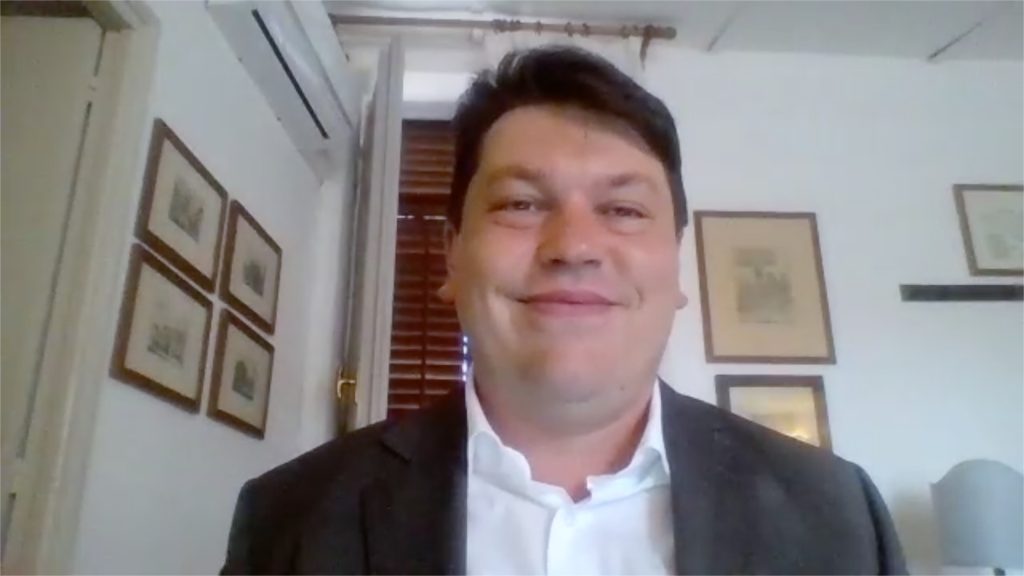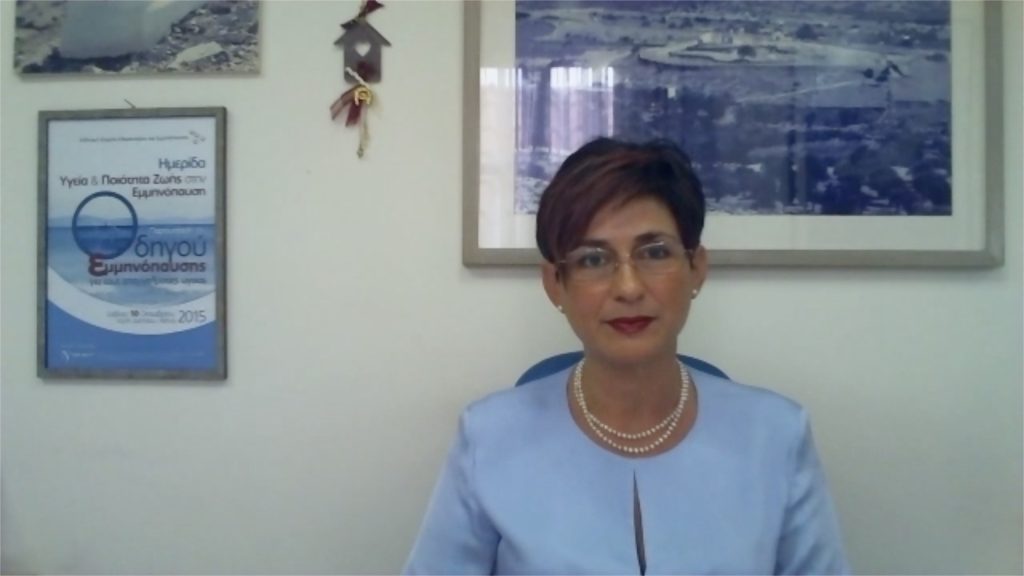 Dr Iulia Pirga is a medical doctor and PhD candidate in endocrinology based in Craiova, Romania. Passionate about bridging scientific knowledge with compassionate care, she is committed to making complex medical information more accessible and ensuring patients feel understood and supported. Her current research explores cardiometabolic health after menopause, with a broader interest in the evolving field of endocrine and metabolic medicine. Recently nominated for this feature in collaboration with the European Menopause and Andropause Society (EMAS), Dr Pirga’s approach to care blends scientific precision with patient-centred communication, and she is dedicated to making complex medical information accessible and meaningful. She believes in the power of empathy and individualized care to improve outcomes and build trust.
Dr Iulia Pirga is a medical doctor and PhD candidate in endocrinology based in Craiova, Romania. Passionate about bridging scientific knowledge with compassionate care, she is committed to making complex medical information more accessible and ensuring patients feel understood and supported. Her current research explores cardiometabolic health after menopause, with a broader interest in the evolving field of endocrine and metabolic medicine. Recently nominated for this feature in collaboration with the European Menopause and Andropause Society (EMAS), Dr Pirga’s approach to care blends scientific precision with patient-centred communication, and she is dedicated to making complex medical information accessible and meaningful. She believes in the power of empathy and individualized care to improve outcomes and build trust.
In this Future Leader Q&A, she reflects on the influence of mentorship, the everyday challenges that make endocrinology rewarding, and the value of long-term relationships with patients. Guided by a holistic perspective, Dr Pirga brings equal attention to data and human experience, recognizing that both are essential in restoring balance and improving lives.
Endocrinology, in particular, deals with a wide range of conditions that often present in nuanced and overlapping ways. Having had the opportunity to meet experienced mentors who spent decades working in both clinical and academic settings, one of the most valuable lessons I have learned is that “not everything is like in the books and every patient is unique.” While textbooks and guidelines are essential, it is crucial to treat every patient based on their individual biology, context and response to treatment. A holistic approach to patient care, considering the whole person and not just the disease, can significantly influence the quality of care and patient’s overall well-being. In my research, this perspective motivates me to focus on meaningful outcomes, those that truly impact the quality of life.
From the early stages of my training, I was drawn to the complexity of hormones and how they influence nearly every aspect of the body. That’s why I can’t point to a single defining moment; rather, it’s the day-to-day variety when it comes to solving complex cases and contributing to better patient outcomes. At the same time, I am excited about the future of endocrinology. The field is evolving rapidly and I am grateful to be able to combine clinical insight with innovation and research for a better life. I can truly say that my speciality challenges me daily and motivates me to keep learning and growing.
In endocrinology, subtle hormonal imbalances can significantly affect a patient’s health, so being able to diagnose and treat these conditions effectively is truly rewarding. I particularly appreciate the opportunity to build long-term relationships with patients, as many of the endocrine conditions are chronic. This way I can guide them through long-term management challenges and, hopefully, witness their improvement over time. Beyond clinical care, research can be very fulfilling, especially since there are still many unanswered questions in our field. Endocrinology is about balance and helping my patients restore that balance in their lives each day is what motivates me and keeps me passionate about my work.
We learn from the very first days of medical school that the key is to practice good medicine while also being a good human. Balancing the technical and empathetic sides of patient care is essential to being an effective clinician. We often rely on data such as lab values, imaging, and guidelines when treating a patient, but it is essential not to see a person as a number or a diagnosis. As I mentioned earlier, each patient is unique, and those numbers or images only make sense when viewed in the context of the patient’s story. Empathy plays a crucial role in decision-making, especially when resources are limited or when treatment plans need to be adapted to individual circumstances. So take time to listen and understand and, most of all, take time to explain even complex topics in an accessible way. This approach builds trust and ensures that patients feel cared for, not just treated.
About European Menopause and Andropause Society (EMAS)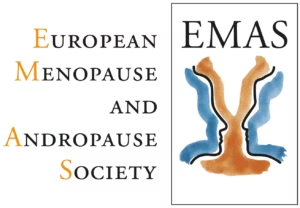
Since 1998, EMAS has been dedicated to promoting health and well-being for individuals in midlife and beyond. As a leading international medical society, EMAS advances menopause and post-reproductive health through research, education, and advocacy. With members and affiliated societies worldwide, EMAS champions evidence-based, inclusive, and collaborative care to support healthier aging.
Disclosures: This short article was prepared by touchENDOCRINOLOGY in collaboration with Dr Pirga. No fees or funding were associated with its publication.
Cite: Q&A with Dr Iulia Pirga: touchENDOCRINOLOGY Future Leader 2025. touchENDOCRINOLOGY. August 8, 2025.
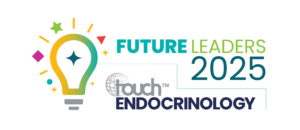
touchENDOCRINOLOGY is celebrating the brightest rising stars in the endocrinology community, who are set to shape the future of the field.
SIGN UP to touchENDOCRINOLOGY!
Join our global community today for access to thousands of peer-reviewed arti
cles, expert insights, and learn-on-the-go education across 150+ specialties, plus concise email updates and newsletters so you never miss out.



